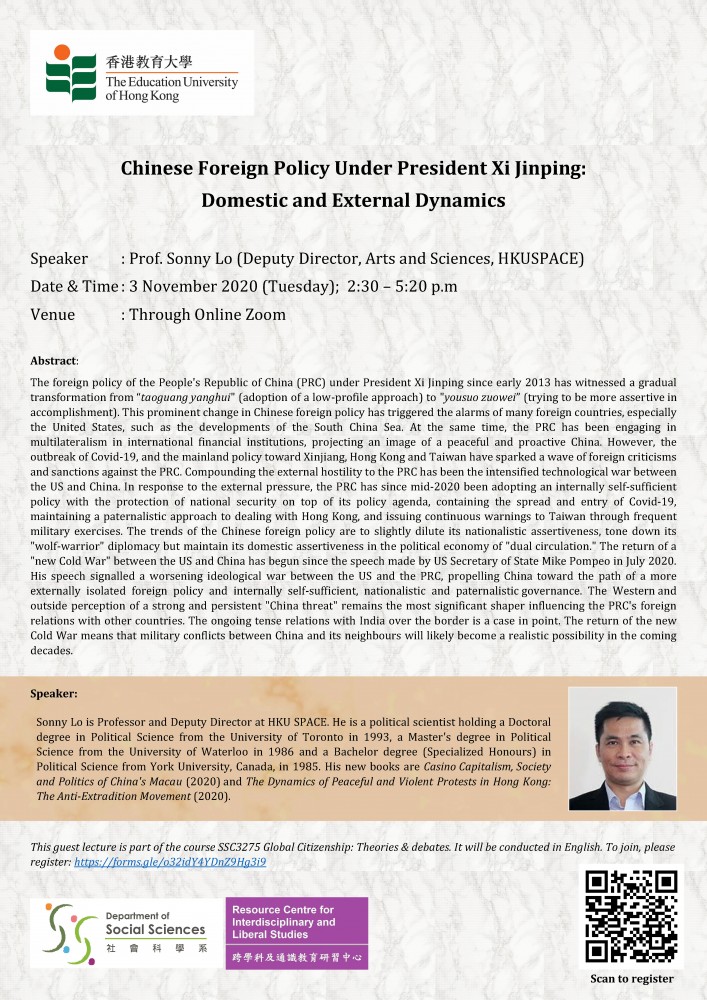Chinese Foreign Policy Under President Xi Jinping: Domestic and External Dynamics
Speaker : Prof. Sonny Lo (Deputy Director, Arts and Sciences, HKUSPACE)
Date & Time: 3 November 2020 (Tuesday); 2:30 – 5:20 p.m
Venue : Through Online Zoom
Click button to download the poster.
Abstract:
The foreign policy of the People's Republic of China (PRC) under President Xi Jinping since early 2013 has witnessed a gradual transformation from “taoguang yanghui" (adoption of a low-profile approach) to "yousuo zuowei” (trying to be more assertive in accomplishment). This prominent change in Chinese foreign policy has triggered the alarms of many foreign countries, especially the United States, such as the developments of the South China Sea. At the same time, the PRC has been engaging in multilateralism in international financial institutions, projecting an image of a peaceful and proactive China. However, the outbreak of Covid-19, and the mainland policy toward Xinjiang, Hong Kong and Taiwan have sparked a wave of foreign criticisms and sanctions against the PRC. Compounding the external hostility to the PRC has been the intensified technological war between the US and China. In response to the external pressure, the PRC has since mid-2020 been adopting an internally self-sufficient policy with the protection of national security on top of its policy agenda, containing the spread and entry of Covid-19, maintaining a paternalistic approach to dealing with Hong Kong, and issuing continuous warnings to Taiwan through frequent military exercises. The trends of the Chinese foreign policy are to slightly dilute its nationalistic assertiveness, tone down its "wolf-warrior" diplomacy but maintain its domestic assertiveness in the political economy of "dual circulation." The return of a "new Cold War" between the US and China has begun since the speech made by US Secretary of State Mike Pompeo in July 2020. His speech signalled a worsening ideological war between the US and the PRC, propelling China toward the path of a more externally isolated foreign policy and internally self-sufficient, nationalistic and paternalistic governance. The Western and outside perception of a strong and persistent "China threat" remains the most significant shaper influencing the PRC's foreign relations with other countries. The ongoing tense relations with India over the border is a case in point. The return of the new Cold War means that military conflicts between China and its neighbours will likely become a realistic possibility in the coming decades.
This guest lecture is part of the course SSC3275 Global Citizenship: Theories & debates. It will be conducted in English. To join, please register: https://forms.gle/o32idY4YDnZ9Hg3i9













